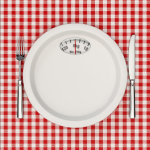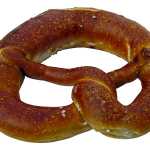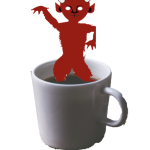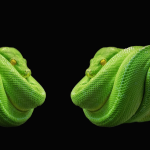Two extensive longitudinal studies are heralded as unveiling the common “truth” that ultra-processed foods hasten our mortality. However, before embracing that kale smoothie, ultra-processed foods may not be the villains portrayed in the media we've been led to believe. Here's why.
Food & Nutrition
The banana has shaped civilizations and sparked scientific inquiry. From its origins in the lush forests of New Guinea to its global domination as a staple of modern diets, the banana's journey is now in peril. Beneath its familiar yellow exterior lies a narrative encompassing genetic manipulation, disease, and global commerce.
It’s final exam time, which means all manner of study hacks are making their semi-annual resurgence amongst students across the country. Among those hacks, nootropics – substances ostensibly increasing cognitive function. What’s behind these brain-boosting products?
A recent study found that controlled periods of fasting could hold the key to unlocking a longer, healthier life. Do we finally have evidence that skipping meals reverses aging, or is the situation more complicated than that?
In the ongoing battle against obesity, whether size matters takes on a new dimension regarding snacks. While discussions often center around nutritional content and dietary habits, the impact of portion and unit size tends to be overlooked. Yet, these seemingly insignificant factors can significantly influence our daily caloric intake.
As long as we don't run out of chemicals, we will never run out of chemical scares. Most are unfounded, especially the current one – that the use of methylene chloride to decaffeinate coffee will somehow harm you. The numbers say otherwise. There is nothing to worry about here.
Americans seem to have quite a positive view of dietary supplements. According to a 2023 survey, 74% of U.S. adults take vitamins, prebiotics and the like.
The business of supplements is booming, and with all the hype around them, it’s easy to forget what they actually are: substances that can powerfully affect the body and your health, yet aren’t regulated like drugs are. They’re regulated more like food.
Discovering the truth about the impact of ultra-processed foods on our brains can be like navigating a maze of conflicting information. In a recent article published by The Wall Street Journal, the spotlight was once again cast on this controversial topic.
William "Bill" Post, who recently passed away at age 96, may not ring a lot of bells, but his invention sure does. Post is credited with the invention of Pop-Tarts. The little devils were first marketed in 1964 but even after 60 years, they remain wildly popular – to the tune of three billion sold annually. Here's a non-serious look at Post and his breakfast-changing innovation.
Picture this: a farm where the phrase "the other white meat" takes on a whole new meaning. It’s where farmers swap their pitchforks for snake tongs and hooks, where the scales are tipped in favor of protein, and fewer greenhouse gases are released.
A recent study published in Nature suggests that the key to a longer, healthier life is not achieved by stuffing our faces around the clock. Instead, starving ourselves for a bit might be the ticket to turning back the clock on aging. What is the science behind this hunger game? Is fasting the ultimate cheat code for defying time?
As is widely known, March 14 is also called Pi Day. That's because the mathematical figure, which is used, among other things, to calculate the area of a circle, is termed "irrational," in that it cannot be converted to a fraction – with decimals that go on infinitely. However, it begins with 3.14, hence the association with the calendar. With that, shall we share the recipe for the world's best Key Lime Pi(e)? Absolutely.










